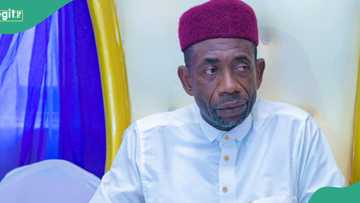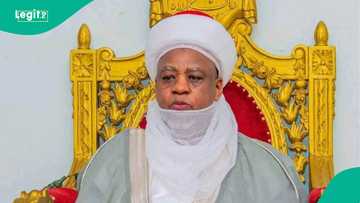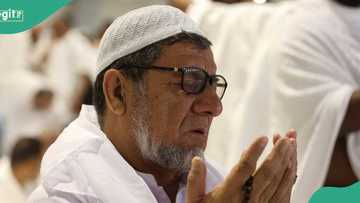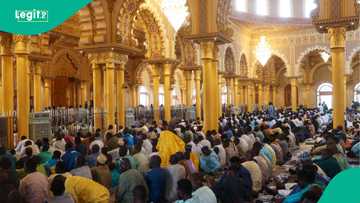Ramadan: History, meaning and purpose of the Holy Month
Ramadan is a holy month of fasting, prayers, and reflection observed by Muslims worldwide. During this period, the Islamic community refrains from eating or drinking from sunrise to sunset. They also get restricted from impure thoughts and bad behaviour.
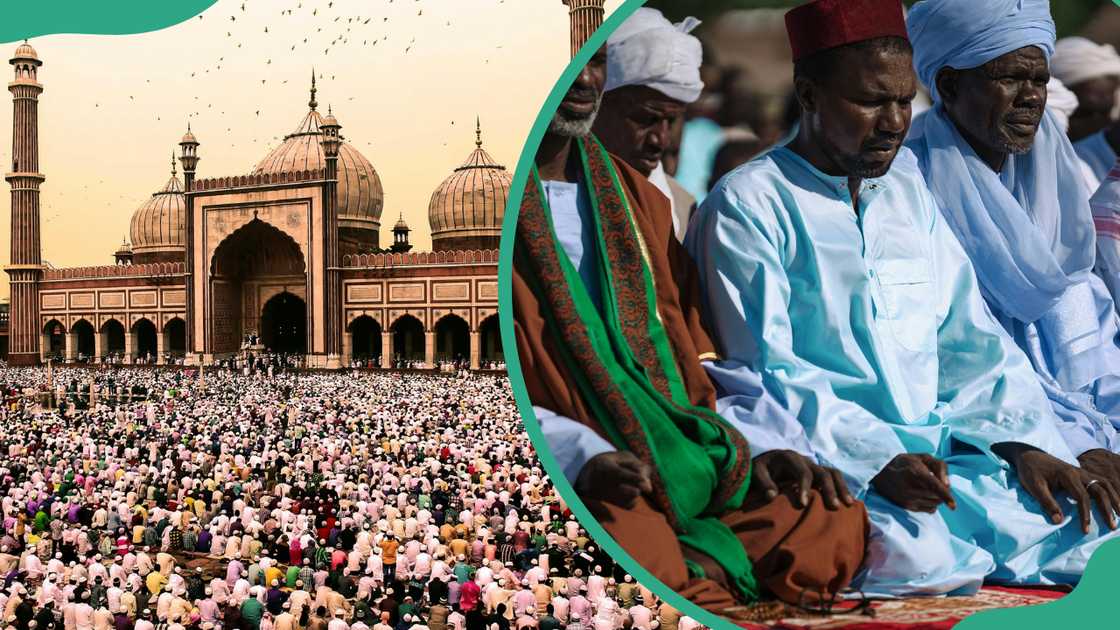
Source: UGC
TABLE OF CONTENTS
- Key takeaways
- Ramadan: History, meaning and purpose
- Ramadan in 2025
- Three phases of Ramadan
- 10 sentences about Ramadan in English
- What is Ramadan in Islam?
- Why is Ramadan celebrated?
- What is the true story of Ramadan?
- Why is the month of Ramadan holy?
- What does the month of Ramadan teach us?
- What are 5 interesting facts about Ramadan?
Key takeaways
- Islam is the world's second-largest and fastest-growing religious group.
- For Muslims, Ramadan is the holiest month of the year and is based on the lunar calendar.
- After religious leaders see the new crescent moon, they announce the commencement of Ramadan.
- During Ramadan, Muslims fast, help the needy, and get closer to God.
Ramadan: History, meaning and purpose
Two essential practices define the holy month of Ramadan. The first is the daily fasts that end at sunsets, when Muslims share meals with family and friends, and the second is the end-of-Ramadan festival.
To crown the month, Muslims mark Eid al-Fitr, one of the essential holidays in the Muslim calendar. Learn more about Ramadan's history and the meaning and purpose of the holy month in Islam below.
What month is Ramadan?
Ramadan is the ninth month of the Islamic calendar. Muslims worldwide observe it as a month of prayer (salah), fasting (sawm), reflection, and harmony within the community.
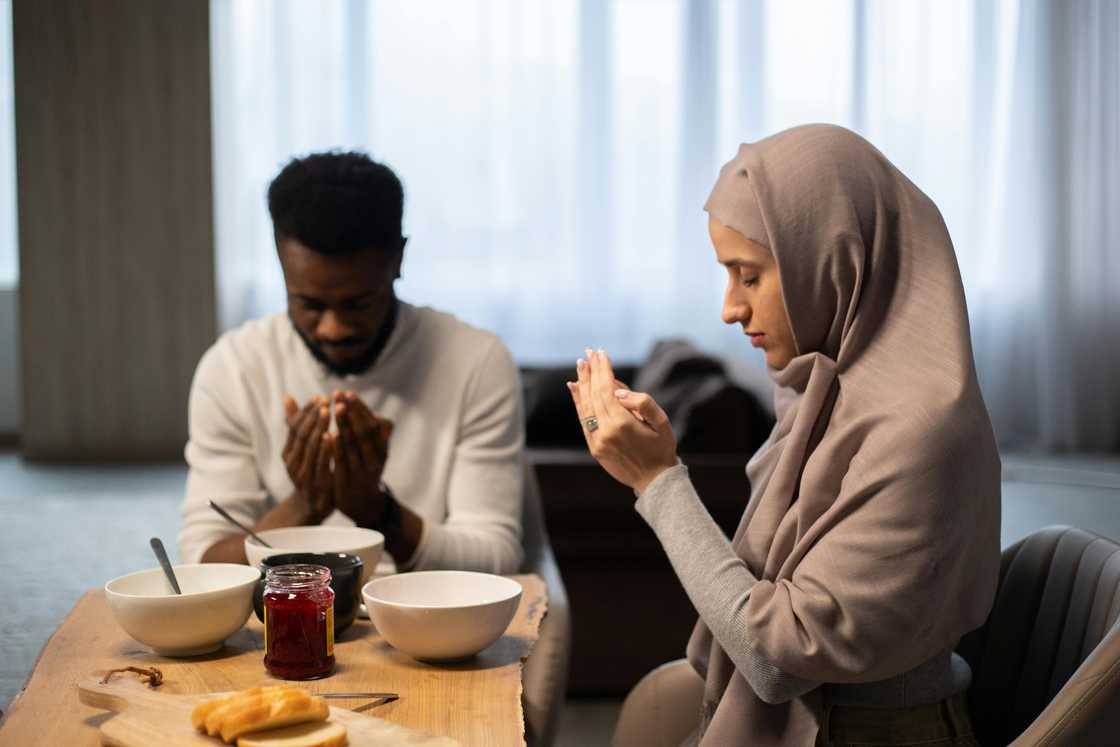
Source: UGC
The meaning of Ramadan
Ramadan is a month of fasting and prayers for Muslims. It is one of the Five Pillars of Islam, which form the fundamental beliefs of the Islamic religion.
The word Ramadan has roots from the Arabic word Ramida which means heat or parched thirst. The holy month is a time of sacrifice through fasting and praying. People also share inspiring quotes and messages to motivate and encourage one another.
It is a period of spiritual reflection where Muslims decorate their houses, shops, and streets with bright and colourful decorations. The holy month lasts 30 days. Muslims partake in deliberation, revelation, revolution, and restoration through fasting and praying during this period.
People exempted from fasting during this period include the aged, sick, pregnant or breastfeeding, those travelling long distances and children below seven years.
History of Ramadan
The month of Ramadan remains the most sacred period of the year for Muslims. It has a rich history that dates back to 610 CE. Prophet Muhammad received the first revelation of the Qur'an during Ramadan in 610 CE.
Muslims believe that during this period, Prophet Muhammad received a revelation from God through Angel Gabriel about the Quran. The historic event is known as Laylat al-Qadr (translates to Night of Power).
Muslims fast and pray during this month to commemorate the revelation of the Quran. Ramadan is celebrated in the ninth month of the Islamic calendar. However, the dates change each year.
Who celebrates Ramadan?
Muslims across the world celebrate Ramadan. It is mandatory for Muslims who have reached puberty to fast. Exceptions are made for sick, pregnant, travelling, nursing, and elderly people.
During this holy month, Muslims fast from dawn until sunset. They abstain from sexual relations, eating, smoking, and drinking.
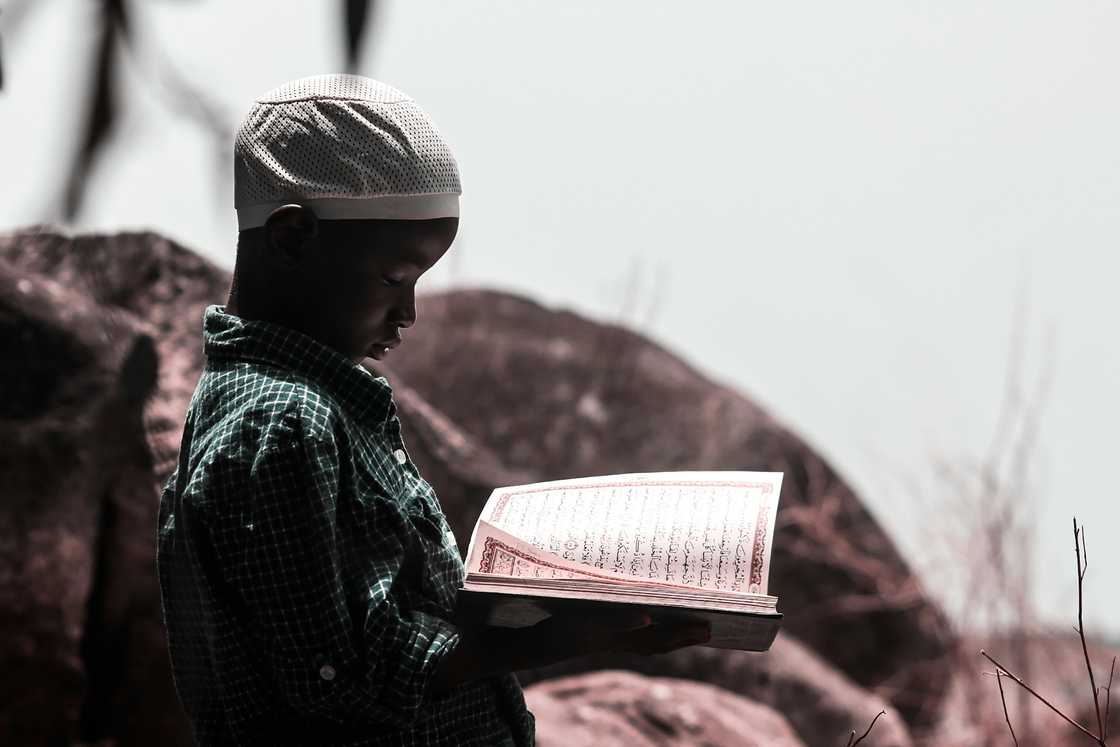
Source: UGC
When is Ramadan observed?
Over 1.8 billion Muslims across the globe observe Ramadan, but the holy month does not have a fixed date on which it begins. The start and end of the holy month varies every year.
The phases of the moon determine the beginning and end of the holy month. There is a moon-sighting committee in Saudi Arabia tasked with announcing the opening date of the month-long event once they spot the new crescent moon.
Once the new crescent is located in the sky by the committee, Ramadan is expected to commence the following day.
Ramadan in 2025
Ramadan begins 10 to 12 days earlier each year because the Islamic calendar is based on the lunar Hijri calendar. The calendar has months that are 29 or 30 days long.
In 2025, Nigerian Muslims started Ramadan on Saturday, 1 March 2025. The Sultan of Sokoto, Saad Abubakar, announced the date. The announcement followed the sighting of the crescent moon on 28 February 2025 in Maiduguri and Bama areas.
Ramadan is expected to end on the evening of Sunday, 30 March 2025, depending on the moon's sighting.
An interesting fact is that Ramadan will be observed twice in 2030 because the lunar year is shorter than the solar year by 11 days. The first Ramadan will likely begin on 5 January and the second on 26 December.
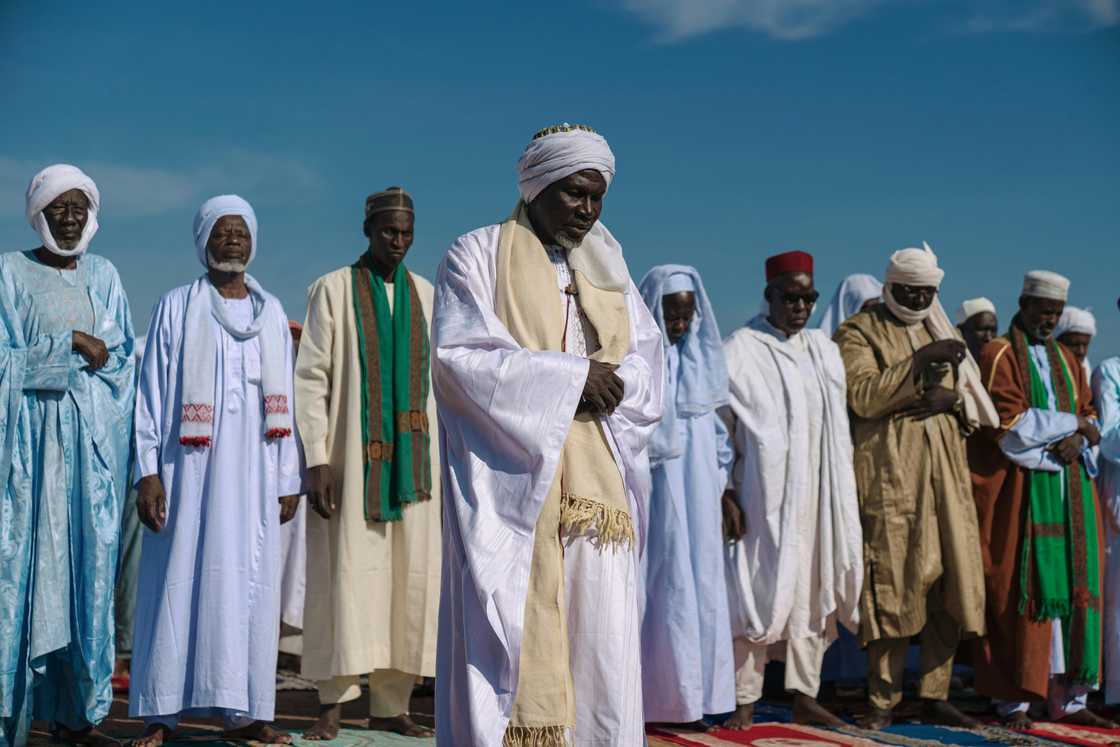
Source: UGC
Three phases of Ramadan
The holy month has three phases of 10 days each, as explored below.
First Ashra – Days of Mercy
First Ashra marks the first ten days of the 30 days of prayer and fasting. Muslims use this period to seek mercy from Allah. During the Days of Mercy, Muslims are required to show kindness to other people by helping and treating them well.
Second Ashra – Days of Forgiveness
The second Ashra is also known as the Days of Maghfirah. During this time, Allah’s forgiveness is at its peak.
Therefore, it is the period used to seek forgiveness of sins committed. People are also expected to be kind and forgive their loved ones during these ten days.
Third Ashra – Days of Seeking Refuge
These are the last ten days of Ramadan. People spend these last days in the Mosque. The Days of Seeking Refuge are important because Muslims ask Allah to keep them away from hell on judgment day.
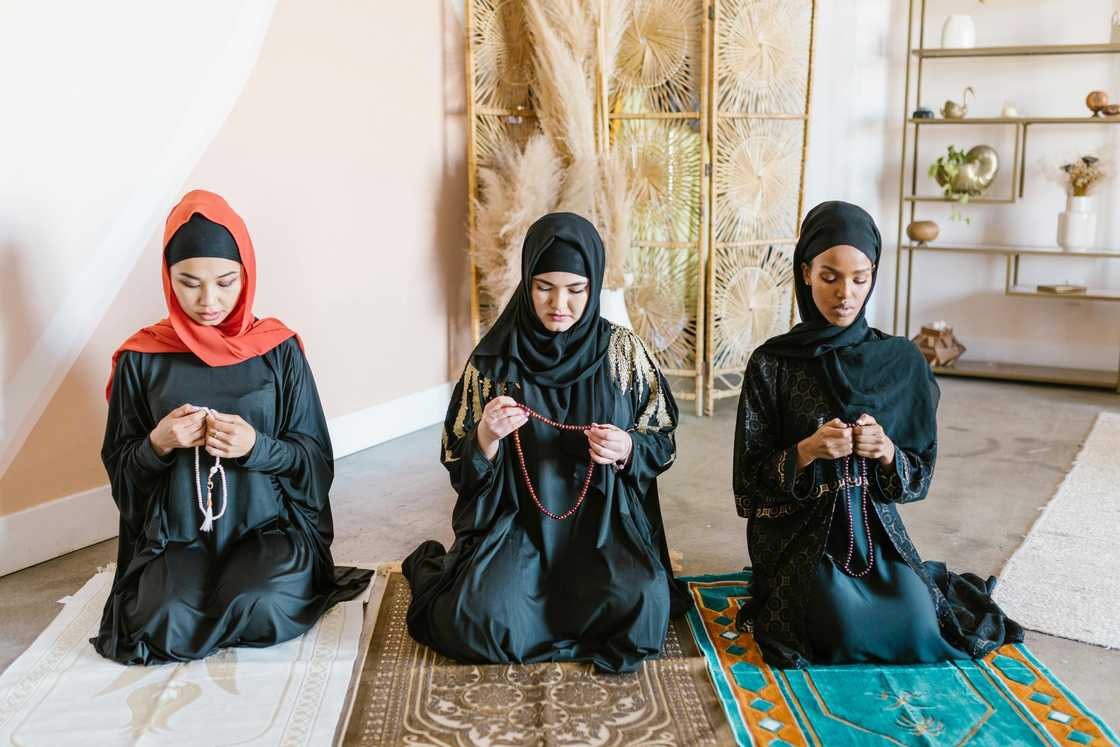
Source: UGC
What is the purpose of Ramadan?
The ultimate purpose of Ramadan is to get rid of old habits and develop and strengthen the powers of self-control and denial. Below is a look at 10 importance of Ramadan.
- Fasting and prayer draw people close to Allah. Forming a secure connection with Allah is key to reaping the benefits that come from the holy month.
- Muslims get the opportunity to seek forgiveness for their sins. Ramadan is a month of reformation and reflection on the past to prepare for a better future.
- The holy month opens the door for people to forgive others as they seek forgiveness from Allah.
- The holy month helps people acquire the value of sharing with family, friends, and those in need. Charity and generosity are essential values advocated for during this festival.
- Fasting is an important lesson in obeying Allah. Muslims fast because God ordered them to do so.
- Fasting offers Muslims the chance for self-improvement through practising what Prophet Muhammad taught, including praying and reciting the Quran.
- Fasting helps in filling up the tanks of Taqwa. It leads Muslims to an inevitable chastening of their souls.
- Scientifically, fasting improves health in many ways, including keeping the digestive system calm and regulated.
- Fasting softens people's hearts towards the poor.
- It develops patience and resilience among Muslims.
10 sentences about Ramadan in English
Below is a list of 10 facts about Ramadan you should know.
- Ramadan is one of the Five Pillars of Islam.
- The practice of fasting during Ramadan began in the year 610 CE.
- It is marked during the ninth month of the Islamic calendar.
- Ramadan marks the month the Qur’an was first revealed to the Prophet Muhammad.
- During this period, Muslims do not eat or drink anything during the hours of daylight.
- Ramadan dates change every year.
- Muslims have a special meal before and after each day of fasting.
- The end of the holy month is celebrated with a big celebration called Eid ul-Fitr.
- During this holy month, you can greet someone by saying Ramadan Mubarak.
- Ramadan will be marked two times in 2030.

Source: UGC
What is Ramadan in Islam?
Ramadan is a holy month of fasting, prayer, and community for Muslims.
Why is Ramadan celebrated?
Ramadan is celebrated to mark the month the Qur’an was first revealed to the Prophet Muhammad.
What is the true story of Ramadan?
Ramadan in history traces back to the Prophet Muhammad in 610 CE, when he first received revelations from Allah.
Why is the month of Ramadan holy?
Ramadan is holy because it is the month when the Holy Qur'an was sent down from heaven.
What does the month of Ramadan teach us?
Ramadan teaches Muslims self-control, discipline, patience, and community.
What are 5 interesting facts about Ramadan?
- Ramadan is one of the Five Pillars of Islam.
- It is marked during the ninth month of the Islamic calendar.
- Ramadan marks the month the Qur’an was first revealed to the Prophet Muhammad,
- Muslims do not eat or drink anything during the hours of daylight during Ramadan.
- Ramadan dates change every year.
Ramadan helps create a strong bond with Allah. It is a holy month of reflection, transformation, and renewal of the mind. Muslims culminate Ramadan with the Eid al-Fitr celebration.
Legit.ng recently published all the information about Eid al-Adha and why Muslims celebrate it. Eid-al-Adha is celebrated during the twelfth and final month of the Islamic calendar (on the tenth day).
It is a feast of sacrifice that is considered a special Muslim event as it symbolises the willingness of Prophet Ibrahim to sacrifice his son Ismail as per Allah's instructions. Eid al-Adha is commemorated by slaughtering a sheep, lamb, goat or camel to honour the sacrifice by Ibrahim (Abraham).
Source: Legit.ng

Cyprine Apindi (Lifestyle writer) Cyprine Apindi is a content creator and educator with over six years of experience. She holds a Diploma in Mass Communication and a Bachelor’s degree in Nutrition and Dietetics from Kenyatta University. Cyprine joined Briefly.co.za in mid-2021, covering multiple topics, including finance, entertainment, sports, and lifestyle. In 2023, she finished the AFP course on Digital Investigation Techniques. She received the 2023 Writer of the Year Award. In 2024, she completed the Google News Initiative course. Email: cyprineapindi@gmail.com

Adrianna Simwa (Lifestyle writer) Adrianna Simwa is a content writer at Legit.ng where she has worked since mid-2022. She has written for many periodicals on a variety of subjects, including news, celebrities, and lifestyle, for more than three years. She has worked for The Hoth, The Standard Group and Triple P Media. Adrianna graduated from Nairobi University with a Bachelor of Fine Arts (BFA) in 2020. In 2023, Simwa finished the AFP course on Digital Investigation Techniques. You can reach her through her email: adriannasimwa@gmail.com

